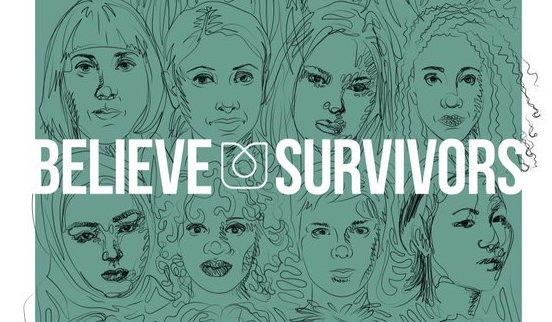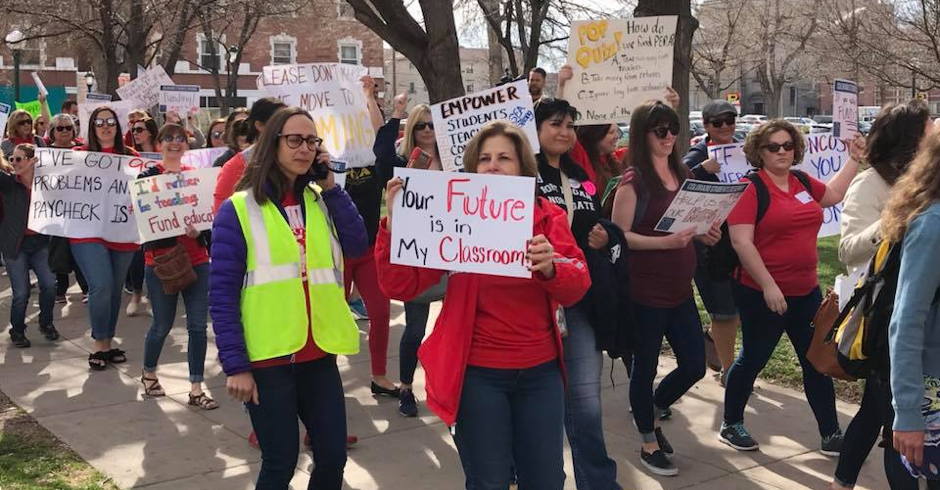#METOO
Trust Women. Believe Survivors. Especially Now.

By Shaunna Thomas, Executive Director of national women’s advocacy group, UltraViolet.
We are witnessing an unprecedented movement of survivors of sexual harassment and assault exposing the powerful men who have abused them. And as more and more survivors speak out, it’s become clearer than ever that harassment and assault are all around us — from Hollywood and Capitol Hill, to restaurants, hotels, board rooms, and everywhere in between.
Now, as political leaders and their supporters on both sides scramble to respond to accusations made not just against their opponents, but also their allies and heroes, one of our biggest obstacles is coming into focus: the persistent tendency to doubt and shame survivors. It’s a huge reason why most survivors don’t report harassment and abuse, and virtually no perpetrators ever face accountability.
That’s why the most critical principle when it comes to taking on sexual abuse in our society must be this: Believe survivors.
This shift is urgent because we are in the midst of an epidemic. In the United States, someone is sexually assaulted every 98 seconds. According to the CDC, 27% of women have been sexually assaulted. Women of color experience a higher rate of sexual violence, and Native American women specifically are 2.5 times more likely to experience sexual assault than people of any other race. Further, people with disabilities are twice as likely to experience sexual violence compared with the rest of the population, and 64% of trans peoplewill experience sexual assault in their lifetimes.
While the numbers are staggering, we live in a society that, at every level — political, cultural, and social — devalues women and, as a result, puts less stock in what women say. The fact is, someone is far more likely to not report assault at all than to falsely report it. Studies have found only two to eight percent of sexual assault reports are false. Yet, too often we cast doubt on all sexual assaults. This is especially true when abuse is exposed in the political arena and both parties retreat to their corners.
If a survivor of sexual assault or harassment decides to speak up, she’ll find her peers and law enforcement concerned much more about her credibility than her well-being.
Was she flirting? What was she wearing? How many sexual partners did she have before this? Is this a ploy to destroy an innocent man’s career? Why did she wait so long to come forward?
This social shaming and retaliation is known as “secondary victimization,” and it can compound the mental health impact of harassment and assault.
As a result, only one-third of sexual assault survivors report, and when they do, they face an unhelpful legal system. In cases of rape, over 99% of perpetrators walk free.
Harassment is rampant in the workplace, and pressure on survivors to stay silent is immense — they often face repercussions for speaking up. Recently, 81% of women surveyed said they’ve experienced verbal sexual harassment at work. In another new poll, 25% of women reported experiencing “unwanted sexual advances,” specifically from men who have sway over their career path. In the same poll, 95% of women reported all men responsible for sexual abuse at work typically go unpunished. And according to a government study, 75%of workers who reported sexual harassment at work faced retaliation, such as getting fired or being passed over for a promotion.
Recent news has mostly focused on high profile white collar jobs, but women in low-wage jobs are particularly vulnerable. For example, per Alicia Garza’s recent op-ed, domestic workers, who are disproportionately women of color and immigrants, face pervasive harassment. They often work alone and have no HR department to turn to. As another example, over 700,000 women farmworkers signed on to a letter detailing their experience with sexual harassment or assault and retaliation for reporting it.
At every level, the scales are tipped heavily against accountability. Doubting survivors lets serial perpetrators abuse with impunity and hides the scope of sexual assault and abuse. The virtual absence of accountability is the reason why it has taken this painful outpouring of stories to awaken so many people to this problem.
While changing our culture will be difficult and complicated, the major shift that first needs to happen is actually pretty simple: When a survivor comes forward, respond based on the assumption that they are telling the truth.
This simple principle is, in fact, a radical and necessary paradigm shift because believing survivors will lead to the next critical step: accountability. Accountability means taking accusations of sexual harassment and assault seriously, and following through with investigations, prosecutions, and disciplinary measures where appropriate. Accountability means making sure that when claims are investigated and prosecuted, abusers are punished accordingly. When we start to see real costs for objectifying and abusing women, our culture will change.
In the end, doubting one survivor discourages everyone from reporting harassment and assault. It legitimizes a legal system that lets 99% of perpetrators walk free and a society where the vast majority of harassment and assault is endured silently with no consequences for the abuser. If we don’t make the shift to believing survivors, we are failing women. We simply cannot go back to a time where silence is the norm. Survivors of sexual assault and harassment deserve better — they deserve our trust.

Enjoy this piece?
… then let us make a small request. The New Civil Rights Movement depends on readers like you to meet our ongoing expenses and continue producing quality progressive journalism. Three Silicon Valley giants consume 70 percent of all online advertising dollars, so we need your help to continue doing what we do.
NCRM is independent. You won’t find mainstream media bias here. From unflinching coverage of religious extremism, to spotlighting efforts to roll back our rights, NCRM continues to speak truth to power. America needs independent voices like NCRM to be sure no one is forgotten.
Every reader contribution, whatever the amount, makes a tremendous difference. Help ensure NCRM remains independent long into the future. Support progressive journalism with a one-time contribution to NCRM, or click here to become a subscriber. Thank you. Click here to donate by check.
 |


















